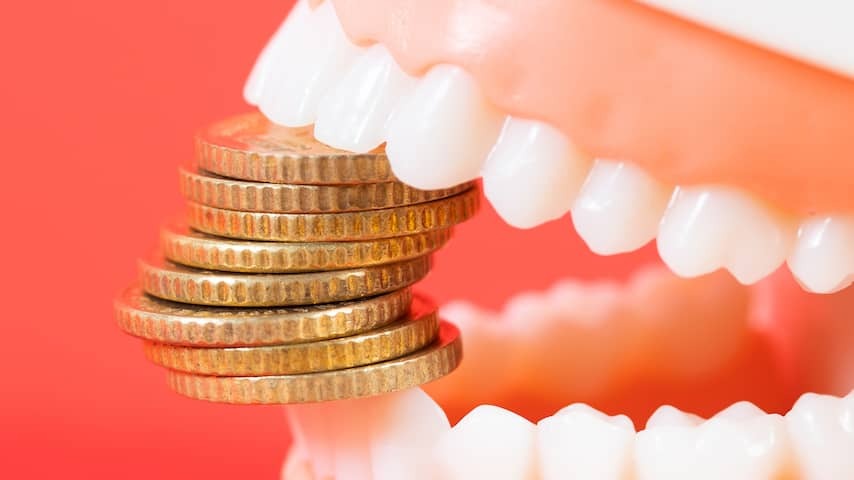
Almost a quarter of adults in the Netherlands have skipped a visit to the dentist due to costs. How do you keep those costs manageable without your mouth suffering?
Filling a cavity costs as much as filling a shopping cart: about 100 euros. And for the price of a root canal and crown, you can go to the sun for a week.
Choosing between a sunny vacation or a medically necessary treatment is not really a choice: nobody wants to suffer pain or lose teeth.
But you can do something to reduce the costs of your dental treatments, says dentist Veronique Smolenaars-de Looff, owner of Tandartsenpraktijk Smolenaars.
Prevention: brushing, using dental sticks, flossing
It may be a no-brainer, but that does not make it any less true: prevention saves you expensive dental treatments. Brush your teeth twice a day with fluoride toothpaste, clean your teeth once a day with floss or interdental brushes and pay attention to the number of times you eat or drink something with sugars or carbohydrates. Limit the number of eating and drinking moments to about six times a day.
De Looff: “That prevents a lot of misery. And come for a check-up at least once a year, because then we can see if it is going well, possibly give guidance and share information with you.”
This way you can keep the problems in your mouth limited, the dentist explains. It is cheaper to have a small cavity filled than to undergo a root canal treatment. A visit to the dental hygienist is also part of that prevention. She gives advice based on your situation and that helps, says De Loof: “We really see fewer dental problems in people who follow the advice of their dental hygienist.”
Filling a cavity costs the same everywhere
The Dutch Healthcare Authority (NZa) determines each year how much dental treatments may cost. These prices apply to all dentists in the Netherlands. Filling a cavity therefore costs the same with every dentist.
The differences in price arise if dental technology is involved: crowns, prostheses, bridges or facings. The dental technician your practice works with determines those prices. As a patient, you have no say in this. You can ask about the costs in advance.
The dentist is responsible for the care, including the dental technical part. They will probably not want to work with a cheap dental technician that you bring in yourself.
On the website of the professional group for dentists you can find more information about dental rates and how the bills are structured.
Discuss cheaper options together
Dental care is not superfluous, emphasizes De Looff. In the case of a cavity, inflammation or gum problems, it is important that the dentist can take action to prevent worse. But you can always discuss whether there are cheaper options. “Instead of a root canal treatment and a crown, you can also choose to have a molar extracted. If it is in the back of the mouth, that is a real option that saves hundreds of euros.”
A dentist cannot decide for the patient, but must ask for informed consent. This means that after clear information about the procedure, risks, costs and alternatives, a patient gives permission for a dental treatment. It is not strange to ask your dentist if there is also a cheaper, medically sound solution.
Is your income below the social minimum? Municipalities offer schemes for this group. These differ per municipality. On the site Gezondverzekerd.nl you will find the offer of all municipalities.
Look at the insurance together with your dentist
Maybe you have a cavity so often that additional dental insurance is more favorable than paying the bill all the time. Or the other way around: maybe you pay a high monthly premium for additional dental insurance that you do not use. A dentist has that overview of your costs and can therefore look with you, says De Looff. She can also look at the spread of your treatments.
Dental insurance usually offers a fixed compensation per calendar year, for example 250 or 500 euros. This compensation is provided until December 31. On January 1, the compensation starts again. In the case of a costly treatment, it may be smart to split it into two parts (before and after January 1), so that you can use the maximum compensation twice. You can also take out additional insurance for one year if you expect an expensive treatment.
Get cavities filled cheaply
In the Netherlands you can go for dental treatments to universities with a dental education program and to some colleges with oral care programs. That is cheaper than with the regular dentist and sometimes even free, such as at the Hogeschool Utrecht.
There you can go for small problems. Think of bleeding gums, bad breath, sensitive tooth necks, tartar or a small beginning cavity.